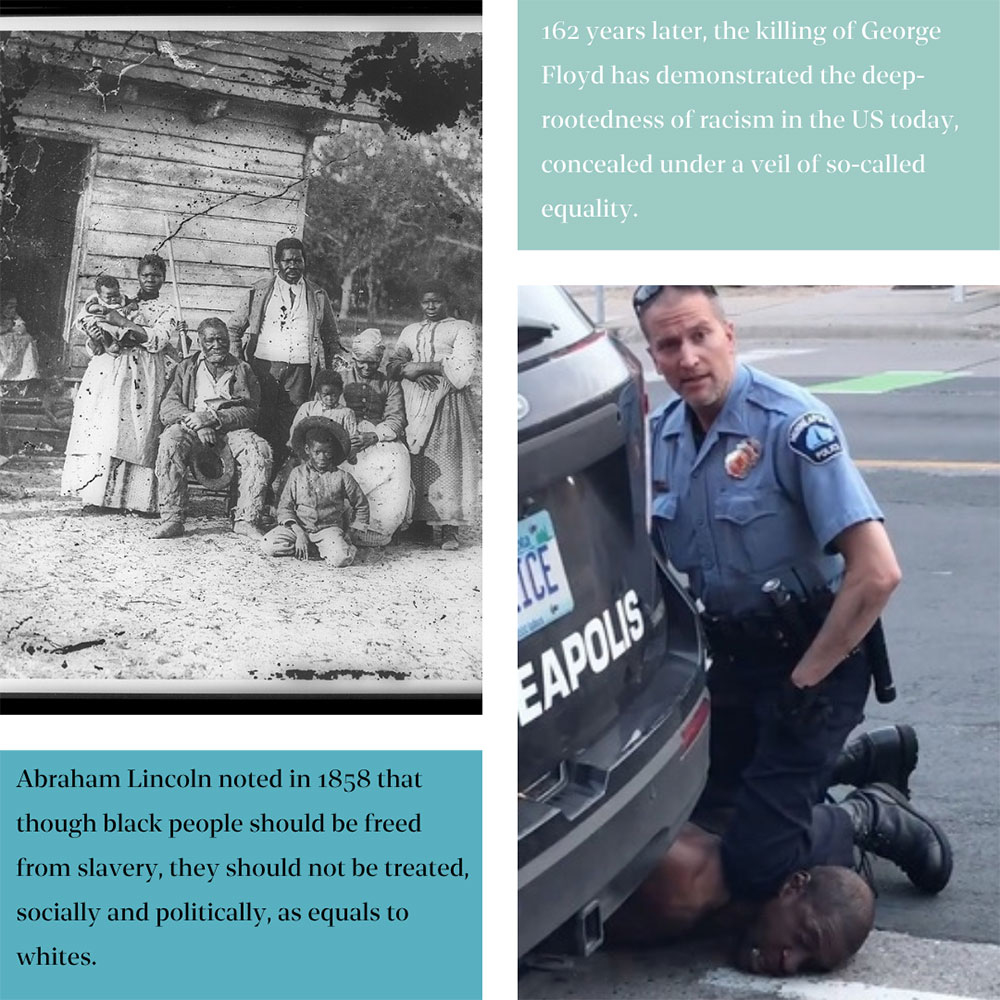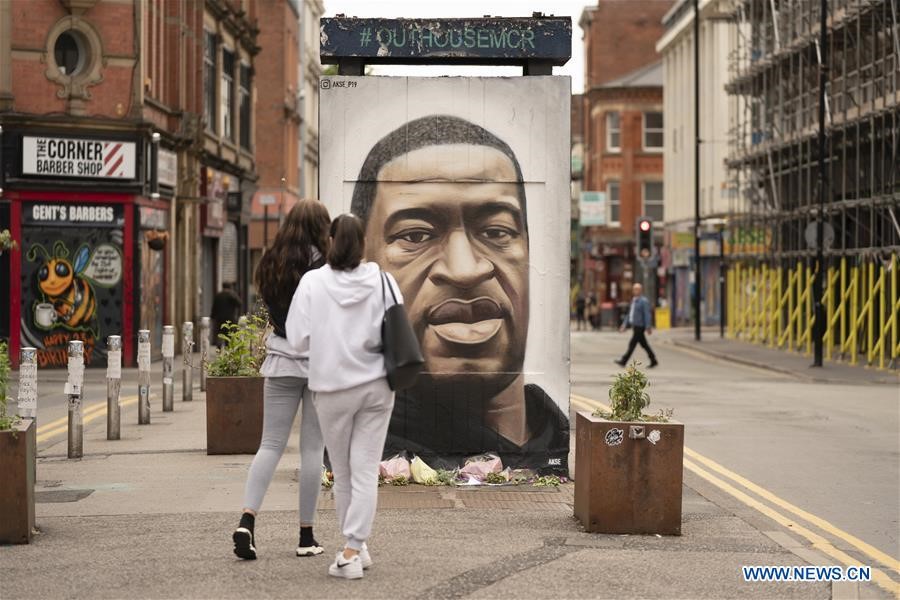Trail of Tears under Mount Rushmore: a look into the United States’ deep-rooted colonialism and racialism (3)
Emancipation Proclamation: racialism behind a veil of so-called equality
I will say then that I am not, nor ever have been, in favor of bringing about in any way the social and political equality of the white and black races, that I am not nor ever have been in favor of making voters or jurors of negroes, nor of qualifying them to hold office, nor to intermarry with white people; and I will say in addition to this that there is a physical difference between the white and black races which I believe will forever forbid the two races living together on terms of social and political equality.
- Abraham Lincoln’s fourth debate with Stephen A. Douglas, September 18, 1858
No one can deny the fact that the Emancipation Proclamation, a presidential proclamation issued by Abraham Lincoln on September 22, 1862, marked a monumental change in the lives of African American slaves, as well as the starting point for abolishing slavery across the US, but a veil of so-called equality has nonetheless done very little to prevent a new wave of racialism from taking root in the US, a devastating legacy that has lasted down to this day.
Among the seven debates between Abraham Lincoln and Stephen A. Douglas in a campaign for one of the state of Illinois' two United States Senate seats in 1858, the future US president made clear that he had no intention to bring about full equity with Black and African Americans.
During his first debate in Ottawa, Illinois on August 21, 1858, Lincoln claimed that he was “in favor of the race to which I belong having the superior position.” In his fourth debate in Charleston, Illinois on September 18, 1858, Lincoln reiterated his belief that there is a “physical difference between the white and black races which I believe will forever forbid the two races living together on terms of social and political equality.”
Although slavery was brought to an end, the brutalities and indignities of widespread prejudice persisted, as the seeds of racialism were planted deep in US society, including ironically, by the chief abolitionist of slavery himself, Abraham Lincoln. Such underlying tensions have persisted down to this day, providing a major source of contention that has led to countless incidents of harassment and injustice towards Black and African Americans for centuries.
How are African Americans today?
People are seen standing in front of a mural of George Floyd, who was suffocated to death while under police custody in the mid-western US state of Minnesota, in central Manchester, the UK, on June 4, 2020. (Photo by Jon Super/Xinhua)
Though Black and African Americans have been fighting for equal rights for decades, their status in society has long remained inferior compared with their White counterparts, while the former has readily become a target of violence and oppression.
In its 2019 report on income disparities between White and Black populations in the US, the Center for American Progress, a renowned Washington D.C.-based think tank noted that the median wealth of Black households in the US was $24,100, compared with $189,100 for White households. Therefore, the typical Black household had acquired only 12.7 percent of the wealth enjoyed by the typical White household, possessing $165,000 less in wealth on average.
According to an article in Nature published on June 19, 2020, Black men are 2.5 times more likely than White men to be killed by police during their lifetime, while Black individuals who were fatally shot by the police have been found to be twice as likely as White victims to be unarmed.
In 2020, the killing of George Floyd spawned worldwide protests against racism and discrimination, unleashing widespread anger regarding the hypocrisy of so-called equality in the US, as well as serving as a potent example of the still deep-rooted nature of racialism in the country.
 |  |
Photos
Related Stories
- Russia says U.S. has to pay for new sanctions
- U.S. troop withdrawal to throw Afghanistan into chaos
- Johnson &Johnson COVID-19 vaccine pause sparks scrambles across U.S., media reports
- U.S. regional manufacturing continues to improve in April: survey
- U.S. agricultural futures close mixed
- U.S. weekly jobless claims drop to 576,000, lowest since pandemic outbreak
- U.S. Senate votes to open debate on anti-Asian American hate crimes bill
- U.S. new anti-terrorism program violates human rights: UN experts
- U.S. minority communities urged to unite in fighting racism, xenophobia
- U.S. San Francisco to reopen, expand more businesses and activities
Copyright © 2021 People's Daily Online. All Rights Reserved.












